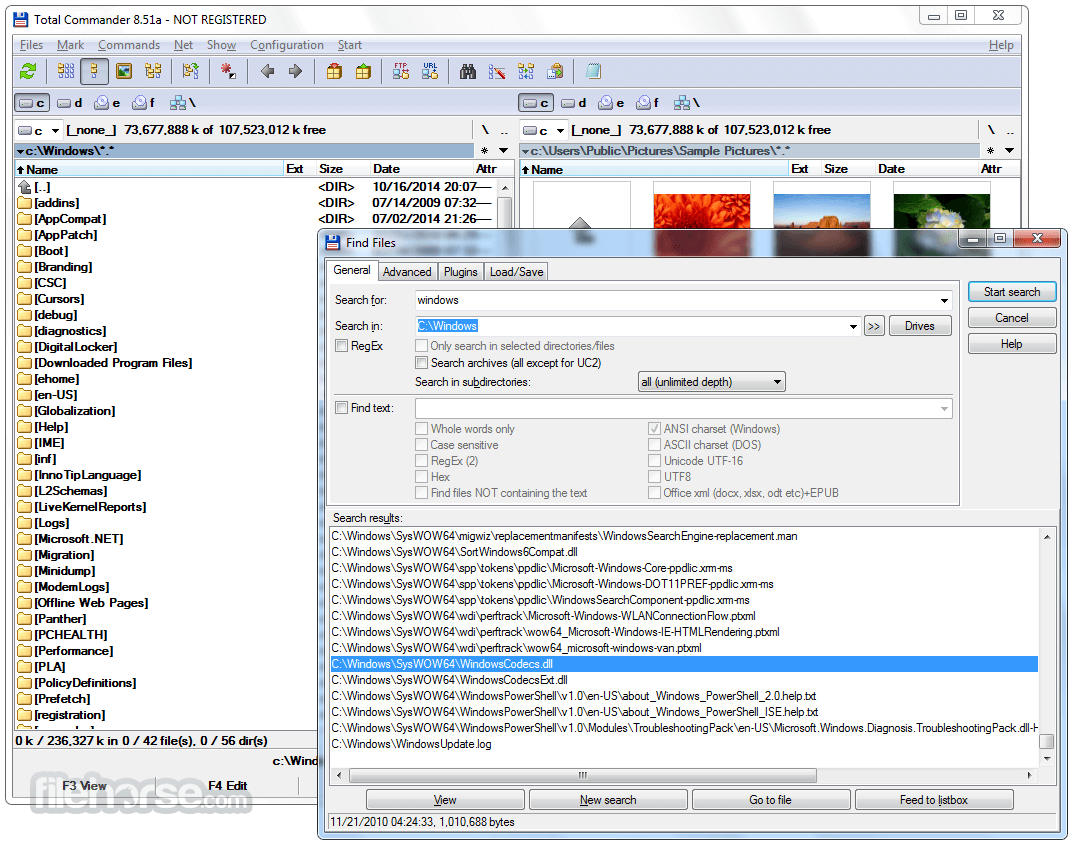

Verifying the version of OpenSSL on Windows It will open a cmd window with the OpenSSL command prompt.
#My commander x64 install
To invoke OpenSSL, you can simply right-click on it in the Windows Explorer at its install location, for example in: C:\OpenSSL-Win64\bin\ We recommend installing OpenSSL outside of your Windows system directory. It is not the same thing at all so pay attention to the release numbers! The worst thing you can do is use an old version that has documented bugs that anyone could exploit following a howto! Step 2. The current version as of this writing (OpenSSL 1.1.0h) is very different from previous releases.
#My commander x64 full
For each version, there are two basic types: the full installer and the light installer.ĭownload the one named “Win64 OpenSSL v1.1.0f” (or a higher-numbered version once it becomes available) to get the full installer. Now you need to pick the right binary from the list. Scroll down the page to the section “Download Win32 OpenSSL”, ignoring the confusing string. To download them, navigate to: ĭon’t be fooled by the Win32 string in the URL nor by the navigation pointing you to a seemingly ancient download page from way back in 2004 (from the “Products” tab through the “Win32 OpenSSL link”).

Get hold of the binariesįinding Windows binaries of OpenSSL is not an easy task, but don’t get discouraged. Here is how you can set up OpenSSL on Windows without having to deal with the code. (Didn’t Microsoft want to “Linuxify” its flaggship OS? Never mind.) If you want to run it, you need a Windows binary, and unless you are willing to compile it yourself, you have to to rely on someone else. While Linux distributions routinely come loaded with OpenSSL, this is not the case for Windows… or shall we say “Windows distributions”. Too bad the official OpenSSL website offers Linux sources only. While you can’t do much about the yet-to-be-identified bugs, you can at least protect your systems from those bugs that have been already patched up and widely documented. Let’s not forget that your car is most likely hackable by a 15 year old and yet you still (presumably) lock the doors. Even so, the inherent flaws of OpenSSL should not be an excuse for not keeping the version you use as bullet-proof as possible. This may be unavoidable, to a certain degree - after all, we are speaking about software. This open source cryptography library that implements the Transport Layer Security (TLS) and Secure Sockets Layer (SSL) protocols is designed to “secure communications over computer networks against eavesdropping”, but guess what: it has been riddled with bugs since its inception.
#My commander x64 software
In the age of cyber warfare, being paranoid is the only reasonable attitude and that means, among other things, being paranoid about software updates.


 0 kommentar(er)
0 kommentar(er)
